Searching for a home in wartime
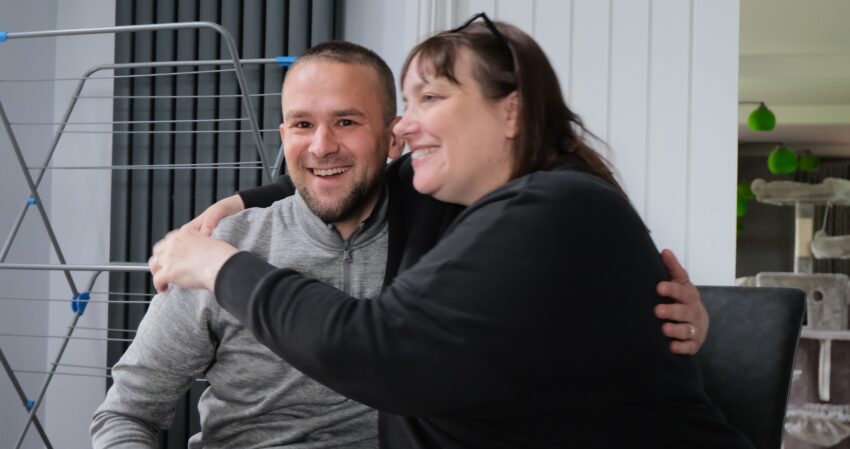
Red tape, wavering processing times and trolls muddle the way for many Ukrainians to come to the UK through the Homes for Ukraine programme. Among the elements and stories that unite those affected by the war, there is one similarity: A leap of faith into the transition.
By Kyran Berlin and Camila Soumastre Molina
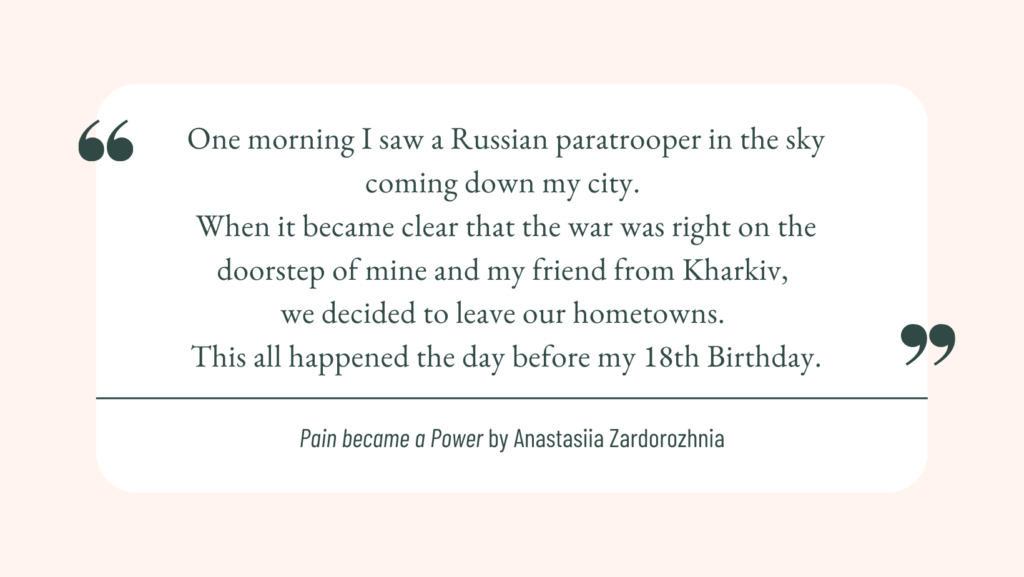
“My name is Anastasiia and I am from Ukraine.”
Anastasiia Zardorozhnia, 18, remembers the train ride, when the stops were and how long they lasted. Her final goal: get to England. This is one of the many memories she portrays in her poem “Pain became a Power.”
February 24 of this year was a turning point in Russia’s invasion of Ukraine and as a result, many European countries united to support one of their neighbors. On March 18, the United Kingdom initiated the Homes for Ukraine programme, which grants Ukrainians escaping conflict a visa status and offers accommodations provided by UK citizens.
“We don’t have pets, but we love dogs and cats.” “We don’t have bad habits.” “We are hard workers.” “We are very friendly.” “Cooking and cleaning are not a problem.” “I am very tidy.” These are some of the many descriptions that are repeated in Facebook support groups to find matches between Ukrainian guests and sponsors in the UK. According to non-governmental organizations, this social network has been crucial during the last three months to find potential housing.
Ukraine Facebook posts by Kyran Berlin
As of May 30, according to information provided by the British government through its website, 143,900 Ukrainians are awaiting the completion of their visa processing to enter the UK, while the total number of approved visas to date is 120,200. The number of people already in the UK is less than half of those already authorized: 65,700.
Those who come through the scheme will be able to stay in the area for three years, have access to universal credit for working ages and healthcare, credit pension, disability benefits, carer’s allowance and benefits for children like school and extra money to support them according to their age.
“We have the best sponsors,” said Eugene Burnosov, a 31-year-old lawyer and bankruptcy manager who was among the first Ukrainians accepted for sponsorship in the Homes for Ukraine scheme.
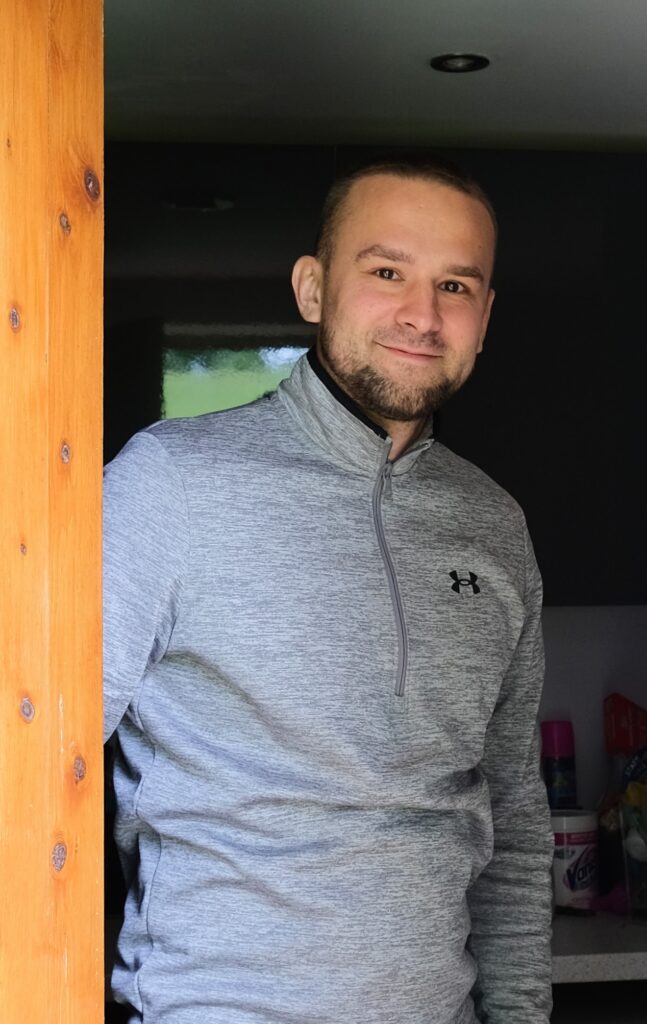
Between Ukraine and his family’s new sponsorship in the UK stood about 60 pages of visa paperwork per person, 16 different relocations for Eugene, his wife Anastasia, and stepson David, and two weeks of waiting to get in.
But the visa is not the only requirement for Ukrainian citizens. As the British government states on its website about the scheme’s operation, they must have been a Ukrainian resident since at least January 1 of this year, must fill all necessary paperwork (in English), and give at least two months’ notice if they decide to leave the sponsor.
Why England?
“I’ve watched a lot of films about England. I love this country because of its people, its mentality, because it’s a democracy. So England doesn’t have a revolution with changing like our country.” Burnosov commented, staring down at the Marshalls’ dining room table.
The Burnosovs decided to leave Ukraine in the first week of March, when a series of bombings shook their hometown of Chernivtsi and caused Anastasia and David to spend 24 hours in a makeshift bomb shelter in the subway. The same day, Eugene packed three large bags of clothes and they left for Poland.
Their reception in Cheltenham, Gloucestershire by sponsors Joan and Andy Marshall was a welcome change. Ahead of their arrival, members of the community donated vouchers, toys and other gifts to welcome the new family. A welcome barbeque was held in the village and the two families bonded over the 2022 the Eurovision final and Queen Elizabeth II’s Jubilee. While speaking about their move to the UK, Eugene Burnosov prepared to accept an invitation to a castle to meet titled royalty.
In May, David started school in Cheltenham and is adjusting well, said Marshall. “He has a lot of toys, he has his own PlayStation, all things,” said Eugene Burnosov as he showed all the legos his son has received from the Marshalls and others.
After moving to the UK, Eugene Burnosov quit smoking after 16 years. Looking out over the lush farmland surrounding the Marshalls’ home, he added that: “We like it here, [it has a] beautiful nature. But it’s worrying. I just need to find a job to support my family. Because I am really nervous about this.”
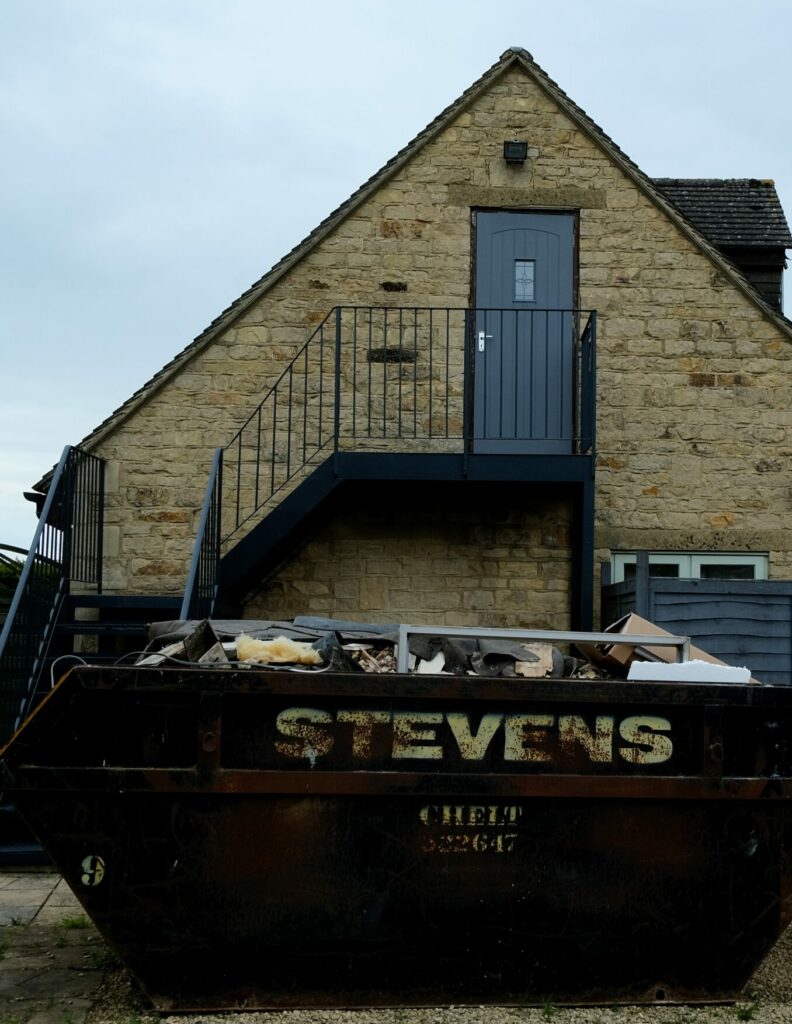
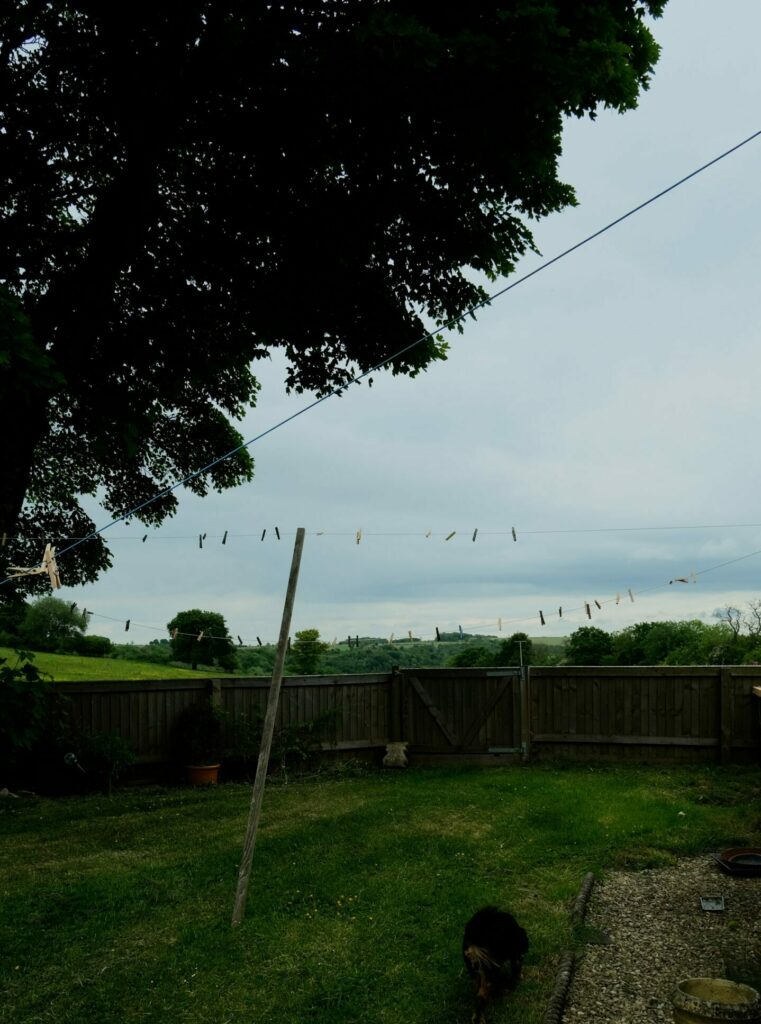
“I know lots of people in town are struggling to get the children to school. So people are finding that really hard,” the Burnosov’s sponsor, Joan Marshall said. Over a glass of sparkling water, she went on to explain how support from the local community has played a crucial role in their adjustment. “The school gave us a couple of bits of uniform that they had, and we bought some more uniforms for [David]… [we also received] some vouchers for somewhere where he could buy a uniform as well.”
Red tape
According to the Homeowners Alliance, UK sponsors who choose to host Ukrainian guest(s) will be given £350 per month if they have an available room or house and are also expected to offer accommodation for at least 6 months rent-free.
Marshall remarked on the “ridiculous red tape” in the process of applying for the Homes for Ukraine Scheme, particularly the process of going through background and accomodation (DBS) checks.
“I think, if you were just a lay person who didn’t deal with finance on legal stuff everyday, you would have struggled with those folks,” Marshall said. “And [the officials] asked them ridiculous questions like, ‘Do you have any car parking tickets in Ukraine?’”
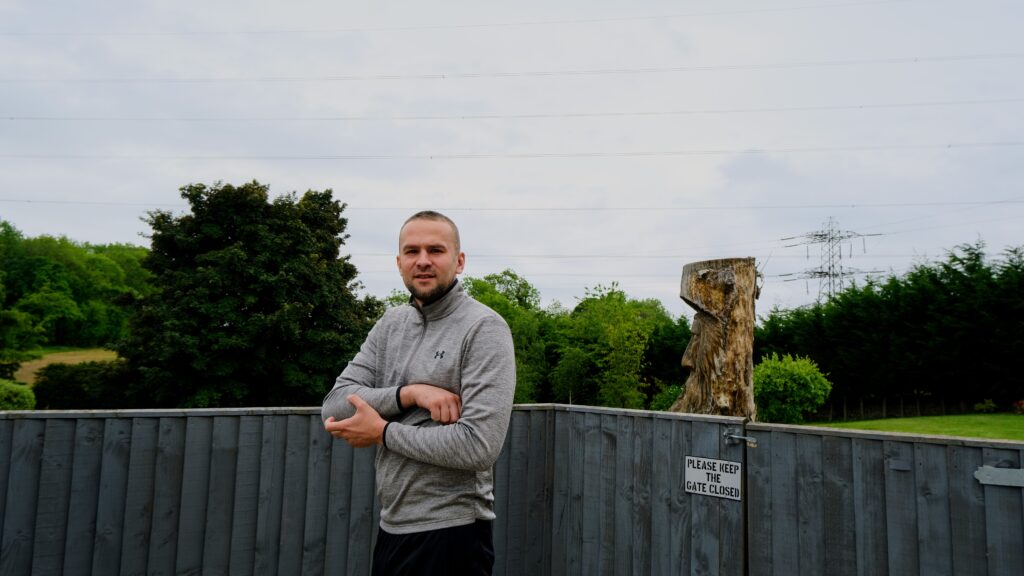
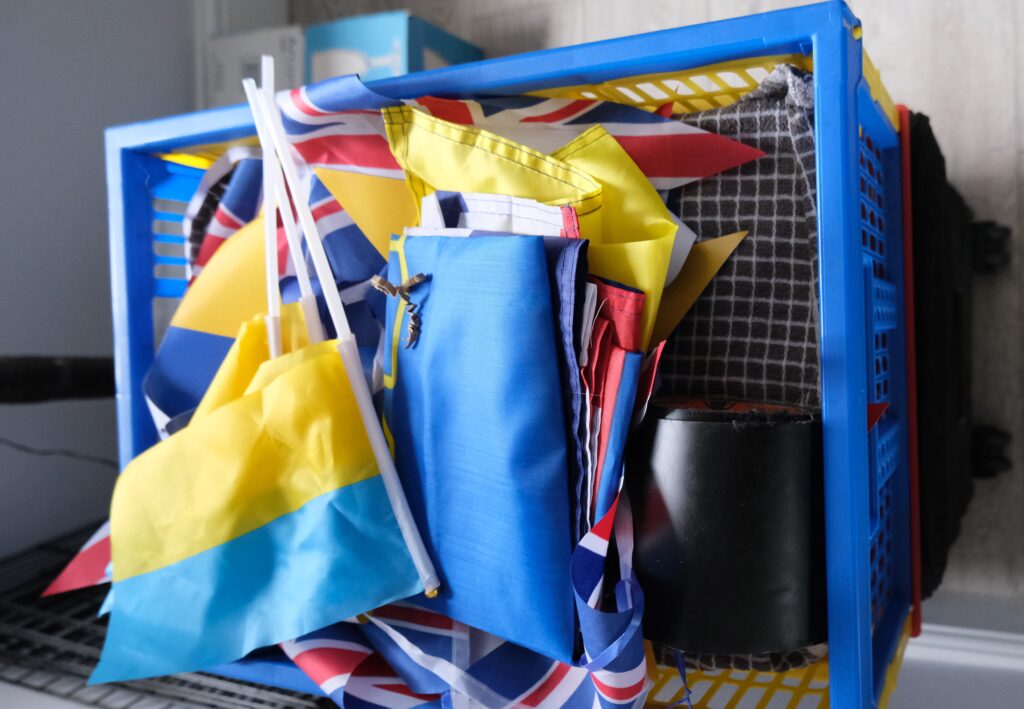
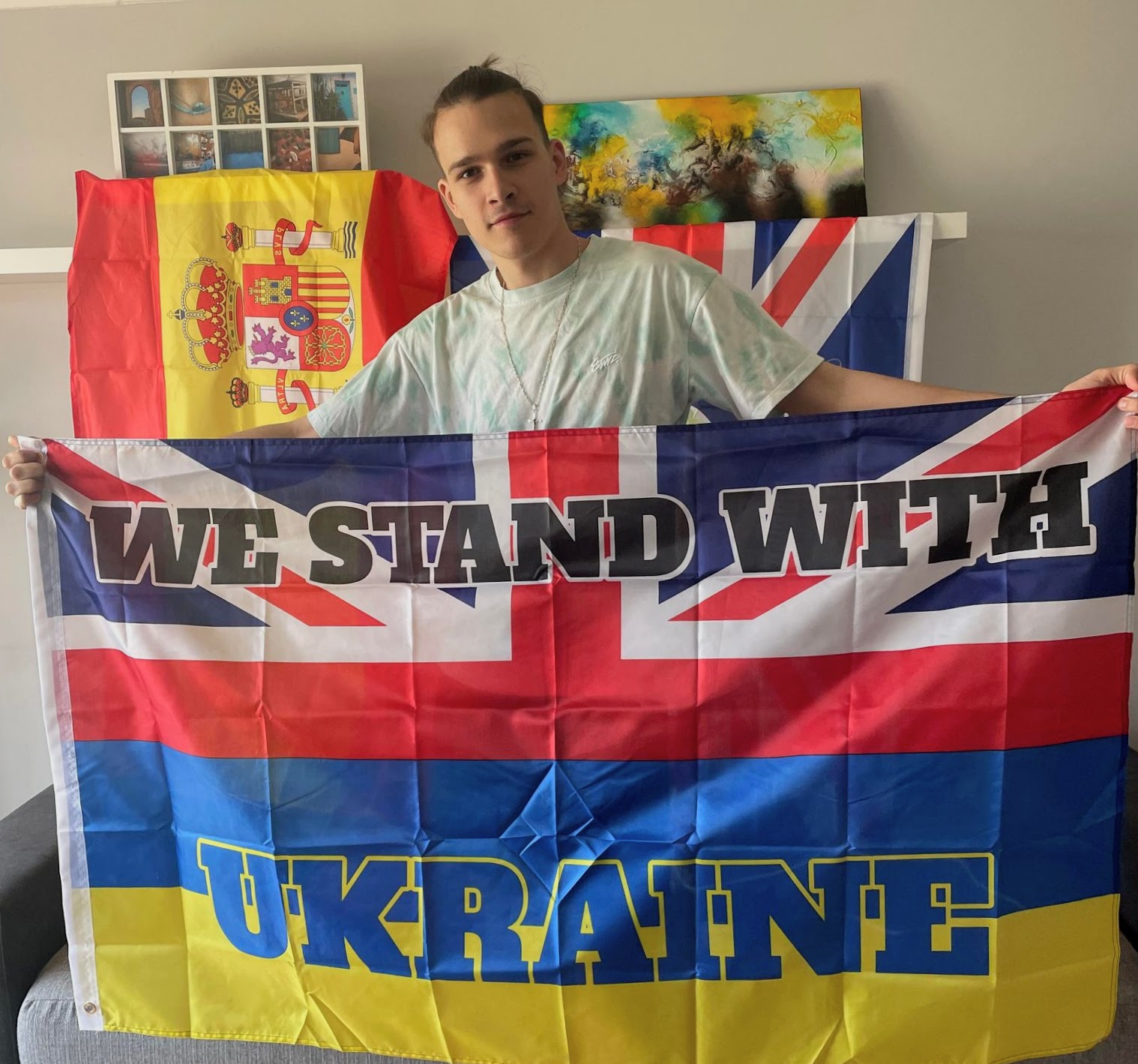
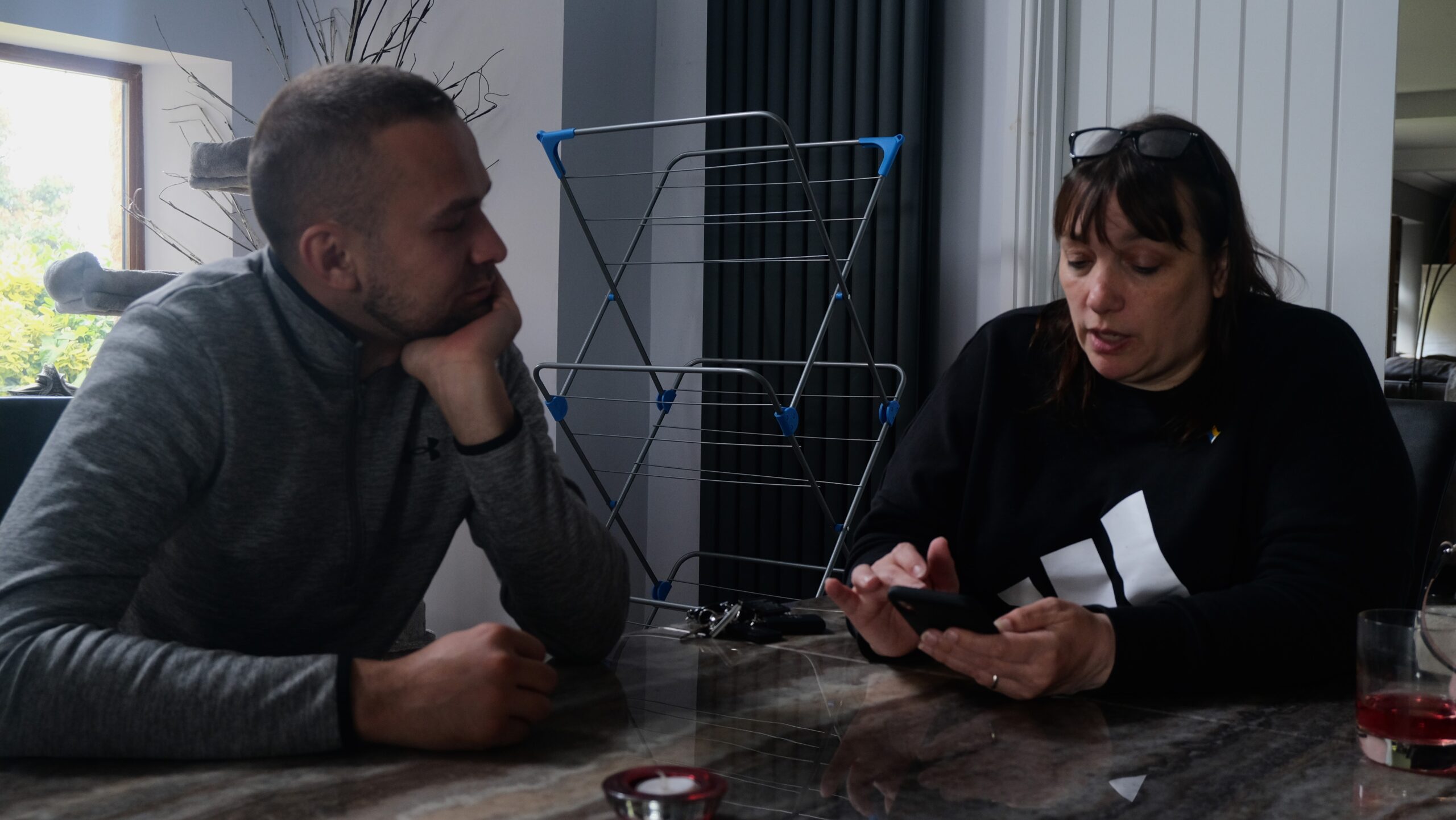
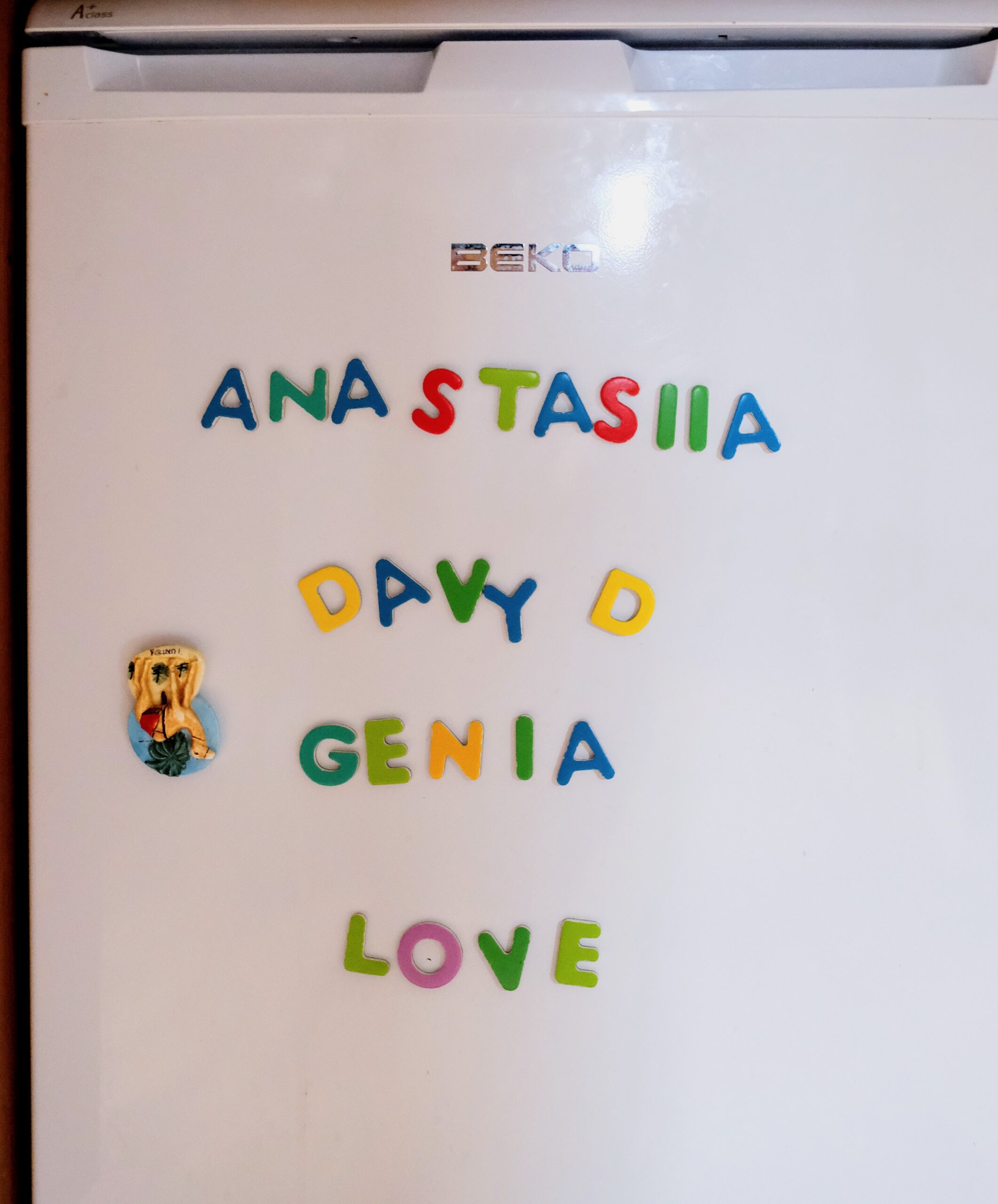
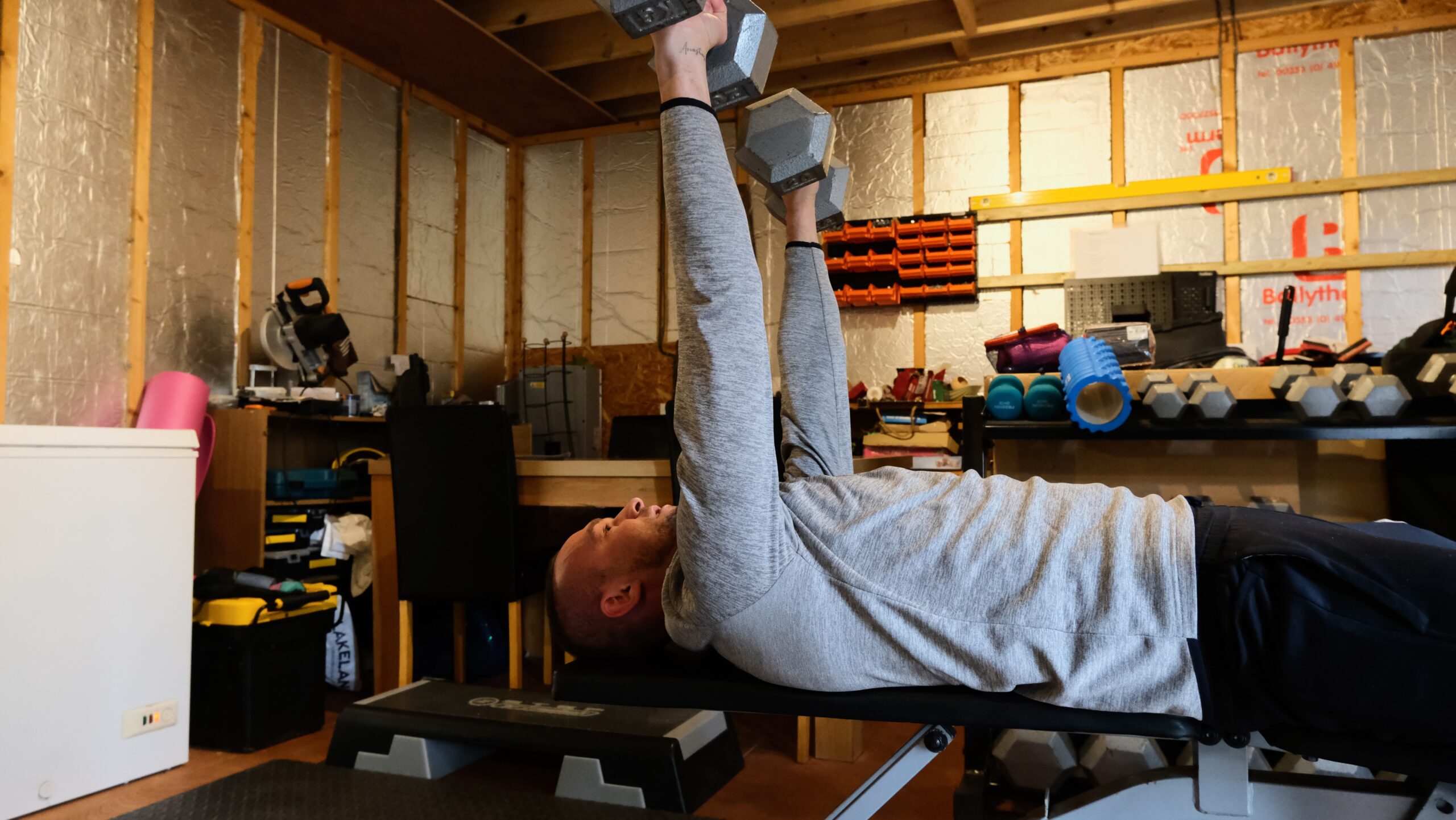
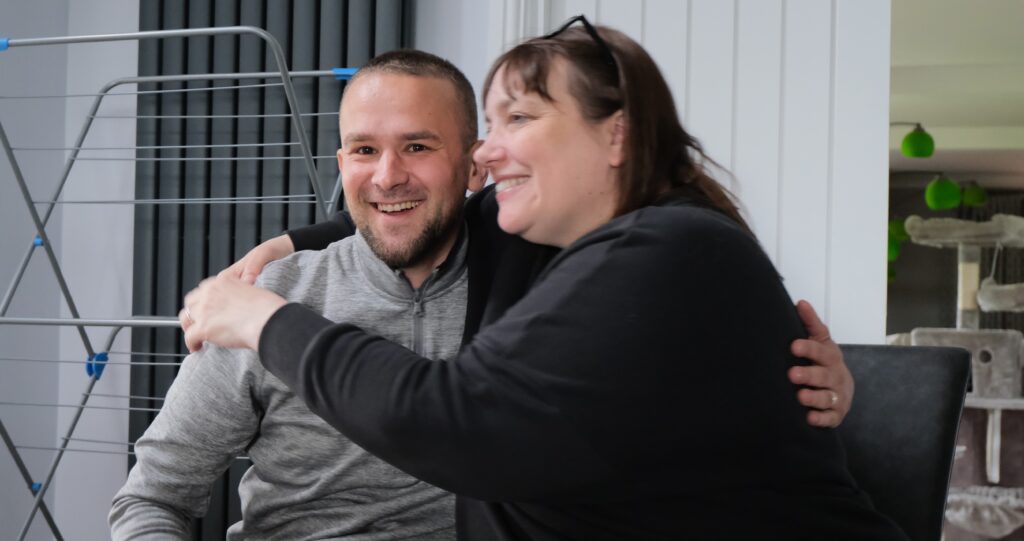
When the Russian invasion of Ukraine began in late February, Marshall wondered how she could help from home. Using Facebook as an intermediary tool, she reached out to Eugene Burnosov before the Homes for Ukraine scheme was initiated.
Once the process became active, by March 18, it took them five hours to submit all 180 pages of the required paperwork for entry. However, due to a systemic failure, their records were lost and they had to do the work all over again the following week.
Upon receiving the Burnosovs, Marshall has been involved in raising money within the Cheltenham community in order to give the family greater independence.
“I didn’t expect it to be challenging. I kind of had faith that it would be quite a smooth process, and that [the government] would help and things like that. Probably a bit naive. (…) I don’t know. I think we just wanted to help,” Marshall said.
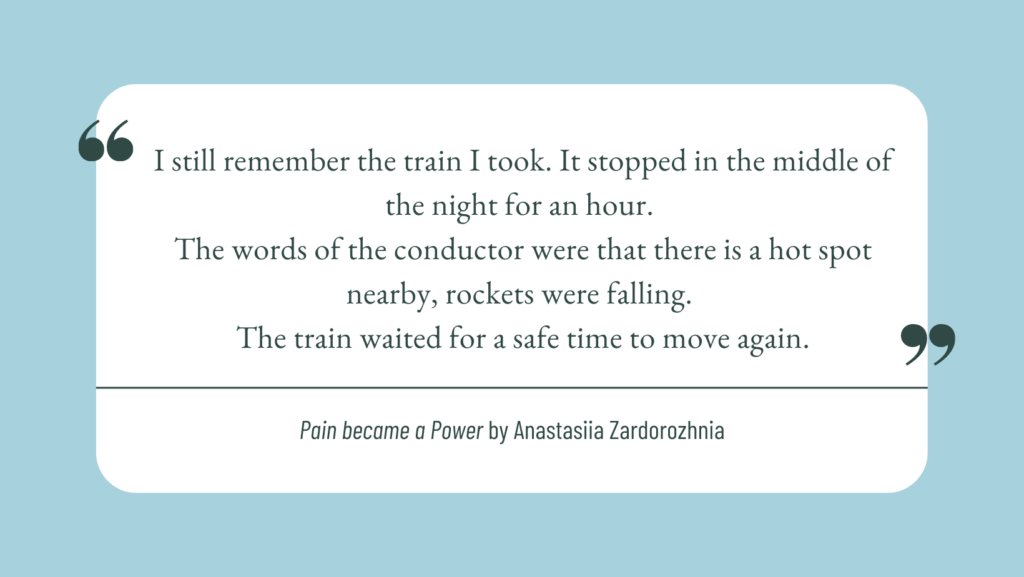
The scheme in practice
While the Burnosovs are one of the success stories through the scheme, the same cannot be said for all families searching for accomodations in the UK.
Without reliable government assistance from the programme, finding a sponsor and housing in the UK was left for many Ukrainians to do on their own. Tens of thousands of Ukrainians took to social media in the first days after the Homes for Ukraine programme began in mid-March, posting in Facebook groups created for the purpose of connecting with potential sponsors in the UK.
In one of these groups, UK Homes for Ukrainians, a post was made either in search of accommodation or offering sponsorship an average of once every four minutes in April.
The impromptu and unregulated systems on Facebook made many people seeking refuge open for exploitation, as some UK posters offered conditional housing in exchange for labor or sought individuals with specialized skills. Competition sparked in matchmaking groups, as many in need of housing began promoting their skills and lack of ‘bad habits.’
While the UK government requires background and passport checks from both parties for the Homes for Ukraine scheme, the UN Refugee Agency (UNHCR) raised concerns in April based on increased reports of Ukrainian women feeling at risk from the programme. UNHCR called for “adequate safeguards and vetting measures to be in place against exploitation, as well as adequate support for sponsors.”
In early May, a whistleblower alerted the BBC that some UK men with a history of violence were found to have used Facebook groups to offer accommodations to single Ukrainian women between 20 and 30 without intervention.
Paving the way
Believing in a need for increased oversight, European individuals and NGOs organized to provide aid throughout the transition process for people leaving Ukraine. This ranged from arranging transportation across the border, to assistance with visa filing and paperwork, to matchmaking with verified sponsors in the UK.
The umbrella organization Easy Gain Project UK-UKRAINE has matched 670+ Ukrainian families and individuals with sponsors and accommodations in the UK using a specialized algorithm, according to their website. Easy Gain Project focuses its efforts in the integration of Ukrainian families in the UK, beginning with a safe passage to the UK from Ukraine and Poland, says Chief Executive Officer Raúl González.
When the Homes for Ukraine program began in April, González began assisting with matching Ukrainians with hosts in the UK over Facebook using Excel spreadsheets. Since then, the Easy Gain Project has grown to a consortium of more than 70 volunteers working with matchmaking based on needs and safety criteria and assisting families and hosts through the transitional process.
“It’s not acceptable that you leave behind families that are just basically fleeing from a war zone,” González said of the government’s response. “My hope is… [the UK government] start[s] putting enough resources in place for us to operate efficiently.”
On average, the process takes about four weeks from application to relocation in the UK, says González. However, varied processing times lead to issues for families fleeing Ukraine.
After three weeks in a refugee center in Poland, Maksymillian Bulhakov, 21, managed to get his visa in four days with the help of the Easy Gain Project and was staying with González in the UK. Meanwhile, his girlfriend and mother have been waiting for more than five weeks since they started the process.
It’s not acceptable that you leave behind families that are just basically fleeing from a war zone.
Raúl González
“The difficulty was to find a sponsor that would like to host a man.” González said, referring to the state of martial law in Ukraine that limits the ways in which young and able men can leave the country. “[Bulhakov] is acting like the head of the family, even though he’s going to be 22 in three weeks… So that changed the image of the sponsors towards them, because they see that they are not fighting, but they are actually helping the Ukrainian people to, you know, be in a safe place.”
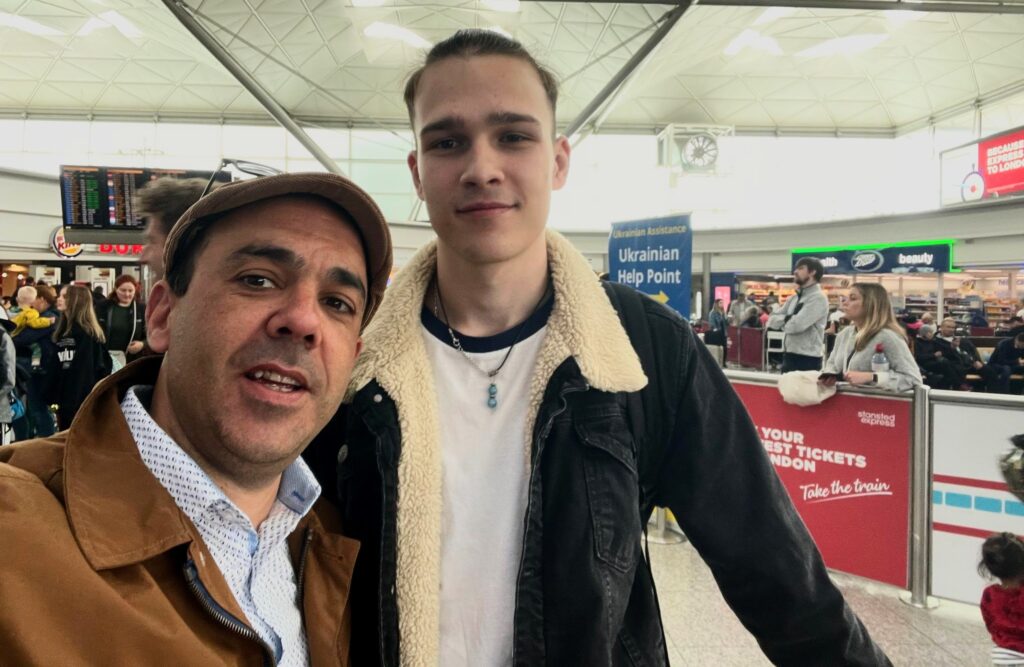
Bulhakov aspires to find an engineering job in the UK, return to graduate studies and find a way for his family to be reunited in the UK. He adds that he had special reasons why he chose to come to England: “Because of my dream and my grandfather’s dream and I need to have high skill in the English language. Then I will live in an English language country, where I could have a good job, good place and safe to live.”
‘More than just a room’
For many Ukrainian individuals and families entering the UK, more challenges arise once they’ve reached their new accommodations. Increased costs of living, delayed criminal record (DBS) and housing checks and interpersonal challenges have created a trend of failed matches between Ukrainian families and UK hosts.
According to González, up to 40% of matches made through the Homes for Ukraine programme since its inception have since dissolved or ended in rematching.
The British government has previously stated that unsuccessful settlement cases are in the minority, and ensure coming updates to safeguarding and DBS procedures.
The Department of Levelling Up, Housing and Communities (LUHC) lists two circumstances on its website in which Ukrainian guests can receive rematching assistance from the government: First, if a LUHC council determines that it is genuinely not viable or safe for the guest(s) to stay where they are. Second, they may be rematched in the case of failed background or accommodation checks.
In cases where host agreements are cut short and guest(s) are not eligible for rematching, many Ukrainians who entered the UK via the scheme are left homeless and in some circumstances destitute, according to UK community organizations.
In a statement, the UNHCR advocated for increased safeguarding measures for Ukrainian guests and proper training to be given to those considering hosting in the UK.
But there’s more of a responsibility to doing it than just saying ‘I have a room,’ because there’s so much that you’ve got to navigate, to try and get anything done.
Joan Marshall
“One of the main reasons why it’s not working is because [the government] doesn’t have access to stringent measures in the matchmaking process,” González said. “We also need to match and manage expectations from both sponsors and Ukrainian families, there was a big disconnect between what sponsors expected and what families expected.”
“But there’s more of a responsibility to doing it than just saying ‘I have a room,’ because there’s so much that you’ve got to navigate, to try and get anything done,” Marshall echoed the sentiment, stressing that they have had to do most things on their own from the beginning.
Multiple attempts to contact officials with the Homes for Ukraine scheme through the LUHC received no response.
Coming home
In late May, Eugene Burnosov was fitted for a suit courtesy of the Cheltenham community for his job search. He is currently studying for the bar exam and plans on continuing his lawyership in the UK.
Bulhakov intends to visit his grandmother in Ukraine in the near future, and like many others hopes to return to his home country once the conflict has ended.
While she plans on attending college soon in the UK, Zardorozhnia said it’s too early for her to plan a return to Ukraine. However, her thoughts remain with friends and family who are still there.
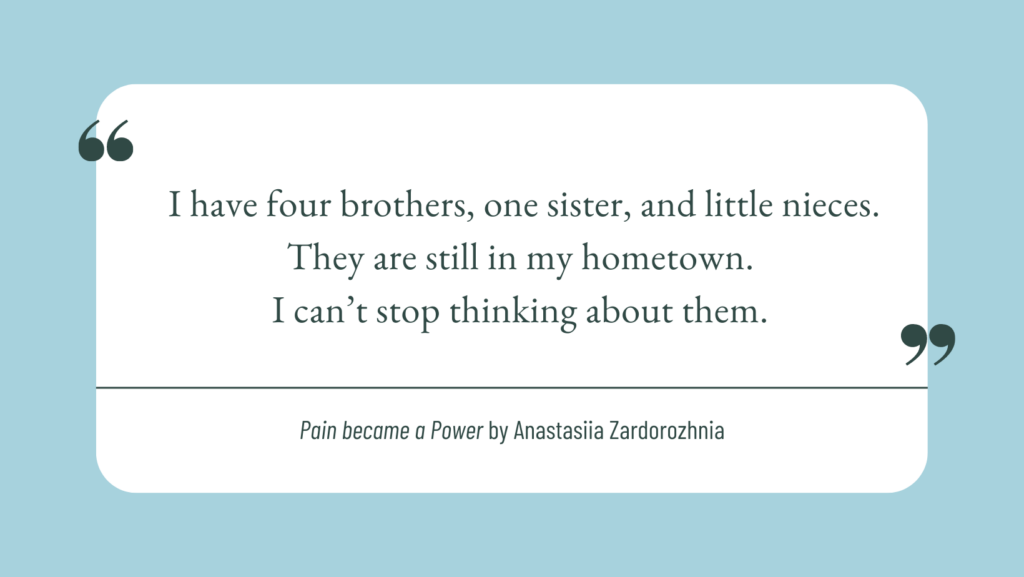
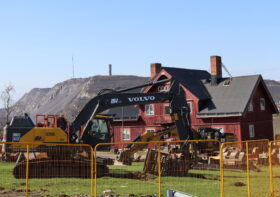


Leave a Reply